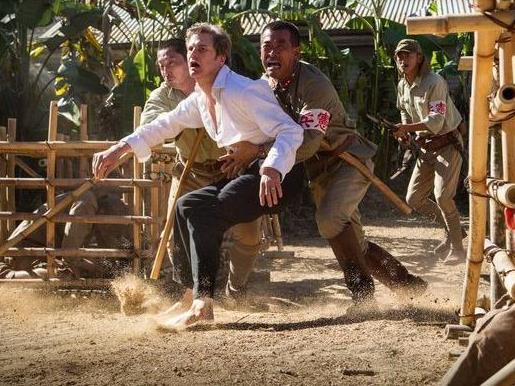A true tale, taken from best-selling memoirs and told over two time frames, provides its narrative. Circumstances of conflict and challenge, complicated by war, torture and worrying deeds, furnish the details. An unexpected romance affords a framing device, and a ray of hope. High-profile stars become the main players, directed by a flourishing Australian directorial talent. Handsome imagery, even in scenes of horror and heartbreak, is ever-present.
The Railway Man commences with a broken man banished to the realm of shattered dreams, a mere misery-afflicted shell of the figure he could’ve become. That man is Eric Lomax (Colin Firth, Tinker Tailor Soldier Spy), a train-obsessed World War II veteran still attempting to cope with the atrocities witnessed and experienced decades before. A chance meeting with the sympathetic Patti (Nicole Kidman, Stoker) ushers romance and stability into his life, but still his dreams are haunted. Only by facing the reality of his military service – and his time spent as a young man (Jeremy Irvine, Great Expectations) in a Japanese prisoner-of-war camp, working on the Thai-Burma Railway in cruel conditions – can he clear a path forward.
Adapted by Frank Cottrell Boyce (Tristram Shandy: A Cock and Bull Story) and producer-turned-scribe Andy Patterson (Burning Man) from Lomax’s autobiography of the same name, the film that unravels is cognisant of its historical weight, both in the personal and broader sense. The period details, cutting between the 1940s and 1980s, are as impeccable as they are elegantly handled. The story slides seamlessly into its poignant, powerful context. Even the most testing displays of untoward treatment and touching scenes of post-traumatic stress are laid out with care, those dealing with Eric’s similarly troubled pal Finlay (played by Thor: The Dark World’s Stellan Skarsgård and Redd Inc.’s Sam Reid) and tormentor Nagase (The Wolverine’s Hiroyuki Sanada and Gambit’s Tanroh Ishida) included.
In his fourth feature after Better Than Sex, Gettin’ Square and the aforementioned Burning Man, director Jonathan Teplitzky favours polish and poise in his approach. His muted but moving mood is appropriate in a film so concerned with closure and catharsis, with the minutiae unfurled gradually and with respect and subtlety. Also understated: his technical flair, in stunning close ups that canvass the characters’ damaged psyches, and well-timed scenes of tension. The non-linear structure – flitting in and out of flashbacks – is less convincing, but maintains dramatic momentum. Early sequences of heady courtship feel out of place, but serve their establishing purposes.
Performances are expectedly impressive, from Firth’s essaying of eccentric and unsettled, to Kidman’s quiet strength in an unglamorous role, to the hardworking Irvine as the film’s true heart and soul. Indeed, the entire feature has the air of the easily foreseen – and that’s its weak point – with few surprises gracing its composed frames. The sensitivity and sentimentality strived for is obvious from the outset, as is the safe – even given the subject – tone. The film’s finale arouses the desired reaction, as does the reality of the story at its centre; however for all its affecting outcomes, The Railway Man remains the sum of its components.
Rating: 3.5
The Railway Man
Director: Jonathan Teplitzky
Australia / UK, 2013, 116 mins
Brisbane International Film Festival
November 13 – 24
In general release: December 26
Distributor: Transmission
Actors:
Director:
Format:
Country:
Release:





